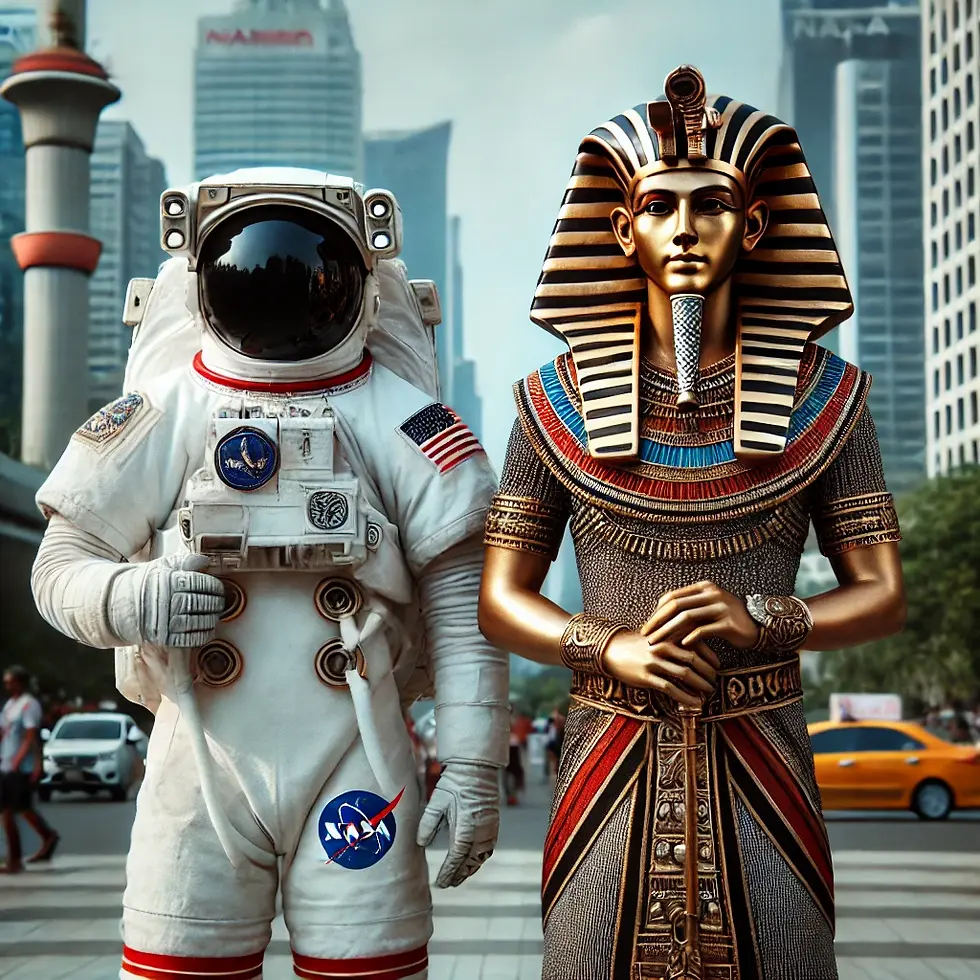In a world where the concept of gods has shaped human civilization for millennia, the idea of eliminating all deities from our reality may seem radical. Yet, as we delve into the annals of history, particularly the era of Pharaoh Akhenaten, we uncover a pivotal moment that highlights the potential for a paradigm shift away from divine worship towards a more self-empowered existence.
The Historical Context: Akhenaten’s Revolution

Akhenaten, the 18th Dynasty Pharaoh of Egypt, attempted a revolutionary shift by promoting Aten, the sun disk. This monotheistic approach challenged the established polytheistic traditions of ancient Egypt, which were deeply intertwined with the social and political fabric of the time. Essentially, killing God and exposing the false system. However, after Akhenaten’s death, his successors quickly reverted to the old pantheon, restoring the traditional system of gods.
The False System Restored
The return to polytheism after Akhenaten’s reign symbolizes a reinstatement of a system that emphasizes external divinity over internal sovereignty. This ancient construct of multiple gods, each governing different aspects of life and nature, was designed to maintain control and order through a hierarchy that placed divine beings above humanity. By reintroducing these deities, the ruling class could ensure their authority remained unchallenged, as the people were conditioned to look outward for guidance and salvation.
The Perpetuation of Fear
One of the most insidious aspects of this ancient system is the pervasive sense of fear it instills. The idea that a higher power is always watching, judging, and potentially punishing us has kept humanity in a state of perpetual anxiety. Fear of divine retribution, fear of eternal damnation, and fear of stepping outside prescribed moral boundaries have all contributed to a collective mindset of submission and dependency. This fear undermines our confidence and hinders our ability to fully embrace our potential.
Wars and Wealth in the Name of Gods
Throughout history, countless wars have been fought in the name of these gods, leading to immense loss of life and suffering. It is estimated that in Christianity alone, 700 million people have lost their lives. Current conflicts, such as those in the Middle East, continue to be fueled by religious divisions. Furthermore, the financial cost of maintaining religious institutions has been staggering. Billions of dollars have been spent on building and maintaining churches, temples, mosques, and other places of worship. Tithes and donations funnel vast sums of money into these institutions, often at the expense of addressing more pressing human needs.
Stagnation of Individual Potential
While nations and societies may have seemingly progressed under the influence of religious systems, individuals often remain stagnant. Under the dominion of an external deity, people are discouraged from exploring their true potential and capabilities. The “dome” of religion acts as a barrier, preventing direct connection to the source of true power and enlightenment. This system creates a dependency that stifles personal growth and self-discovery.
Embracing Self-Empowerment
Eliminating the notion of gods is not about dismissing spirituality or the search for higher meaning. Instead, it is about reclaiming our inherent power and recognizing that the divine exists within each of us. Akhenaten’s vision centered on the sun as the ultimate source of energy and life, symbolizing a direct and unmediated connection to the divine. Like a battery charged by the sun, our power comes directly from this cosmic source, without the need for intermediaries.
When we operate under the “dome” of religion or the myriad gods of old, we place unnecessary barriers between ourselves and this pure, direct energy. These barriers act as middlemen, diluting and distorting our connection to the source. By tearing down these constructs, we allow the full intensity of this energy to flow into us, enabling true self-empowerment.
The Pervasiveness of the God Concept
Even if one does not consciously subscribe to religious beliefs, the concept of a god permeates everyday life. It is embedded in our language (“Oh my God”), our currency (“In God We Trust”), and our institutions (swearing on a Bible in court). This omnipresence creates a false system that props itself up as a reality, influencing our actions and thoughts in subtle yet profound ways.
The process of dismantling this ancient system requires us to question deeply ingrained beliefs and challenge the narratives that have been passed down through generations. It involves embracing a worldview that sees each individual as a manifestation of the highest self, capable of creating and shaping their reality without the need for external deities.
A Mantra for Change
As we move forward, it is helpful to adopt a personal mantra to reinforce this new paradigm: “I do not believe in gods, gods do not exist.” This affirmation can serve as a daily reminder to your commitment to self-empowerment and the rejection of outdated constructs.
A New Era of Consciousness
As we move towards a godless paradigm, we honor the legacy of Akhenaten’s bold vision while paving the way for a future where human potential is not limited by ancient constructs. This journey is not just about rejecting old beliefs but about embracing a new era of consciousness where we recognize our own divinity and the boundless possibilities that come with it.
Enjoy your now.
Comentarios